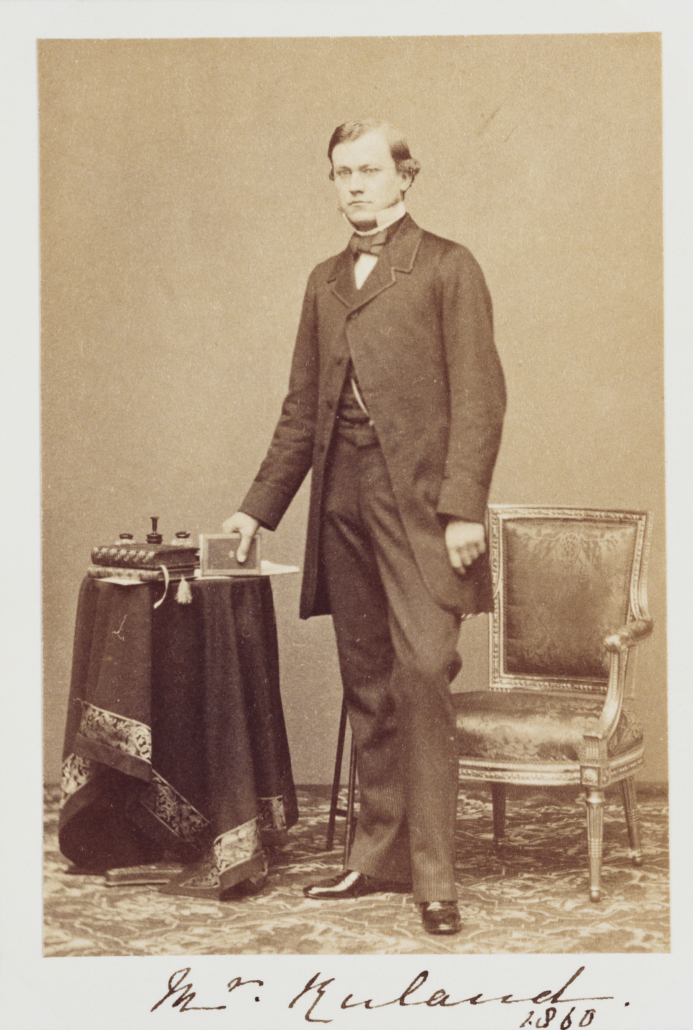Carl Ruland
Carl Ruland – period of service: January 1860–1864
Carl Ruland (1834-1907) was born on 15th July 1834 in Frankfurt/ Main. From 1851 he studied philosophy and the history of art at the universities of Bonn and Tübingen. Ruland, who did not want to leave Frankfurt as he was the only son of his parents, worked as a teacher of German and French at a school in Frankfurt after his doctorate. But in mid-June 1859 he received a telegram from Ernst Becker, who had suggested him as his successor, and asked him to come to London immediately. Ruland followed and accepted the call and was trained by Becker until the end of 1859.
Ruland also took care of the German-speaking libraries and regulated purchases for the Royal collections. During his time, he corresponded about the new machines that Albert had commissioned in England and sent to Coburg to introduce new technology into German agriculture. Ruland was also entrusted with the education of Victoria’s and Albert’s eldest two sons, Edward and Albert, whom he taught German among other subjects.
On 14th December 1861 he wrote to his parents from Windsor Castle: “Ten minutes before 11, the Prince died!” Distraught he carried on:
“His death is a disaster for his family, for England, for all of Europe. … What he was as a human being, no one can talk about this better than me; after all he treated me almost like a son from the very beginning.”
It is said that in this same night, Queen Victoria asked Ruland not to leave her and her children. From then on, Ruland worked as Queen Victoria’s private secretary and remained the children’s tutor. Ruland continued his service to the Queen at least until the mid-1860s. Why he left London has not yet been determined.
From 1870 Ruland took over the management of the Grand Ducal art collections and museums in Weimar, and from 1885 he also became director of the newly founded Goethe National Museum in Weimar. During his time in England, Ruland had had the opportunity to establish close contacts with English collectors and art dealers. His continuation of the work on the Raphael Collection resulted in a critical catalogue of all the master’s works, printed in Weimar in 1876.
In 1873 Ruland married the former Weimar court actress Marie Schulz, and one year later their son Carl Günther was born. Ruland was the president of the Goethe Society in Weimar from 1899-1906. In 1894 he became a member of the Academy in Erfurt and participated as an author in the Allgemeine Deutsche Biographie. He died in Weimar on 13th November 1907 at the age of 73.

